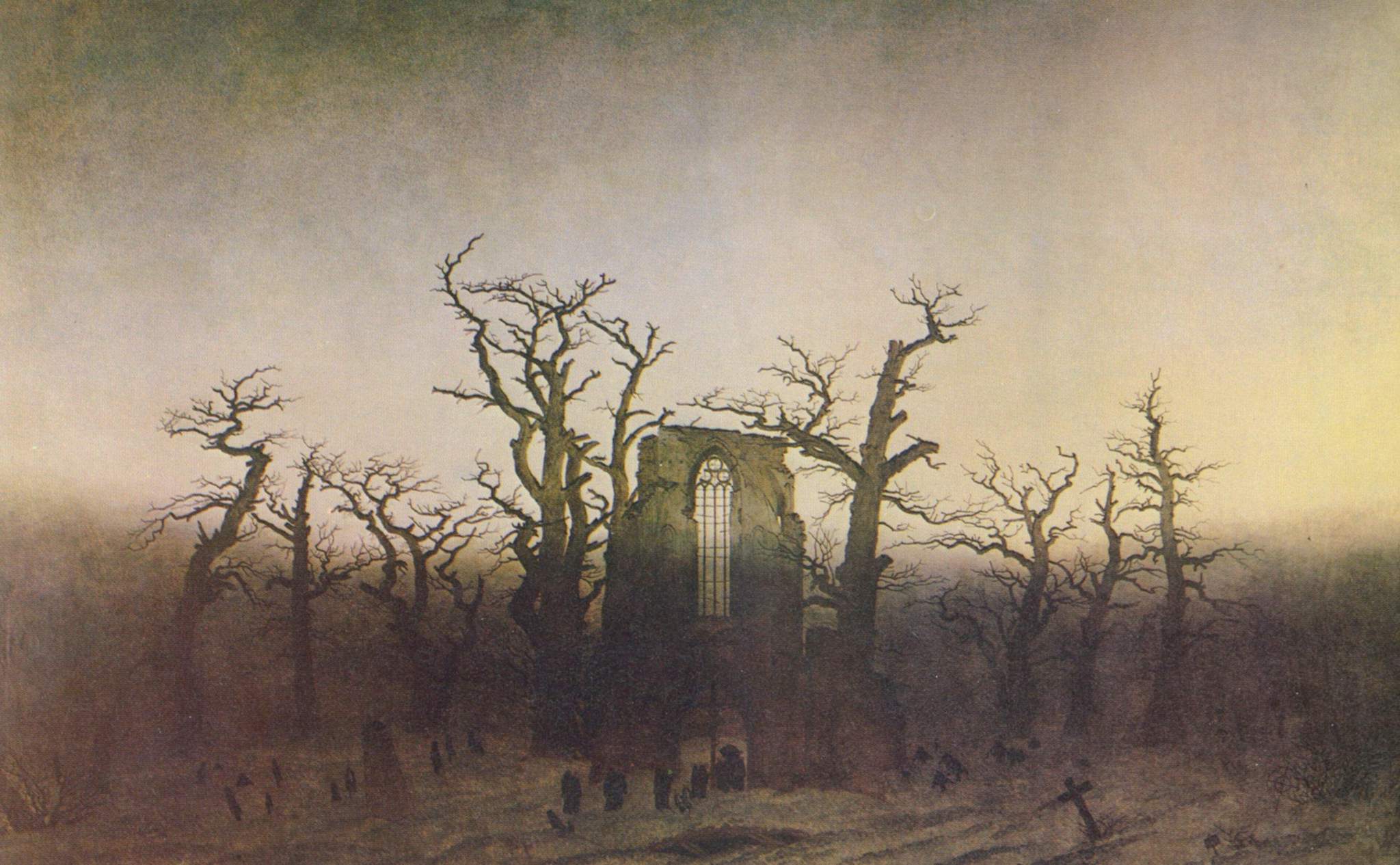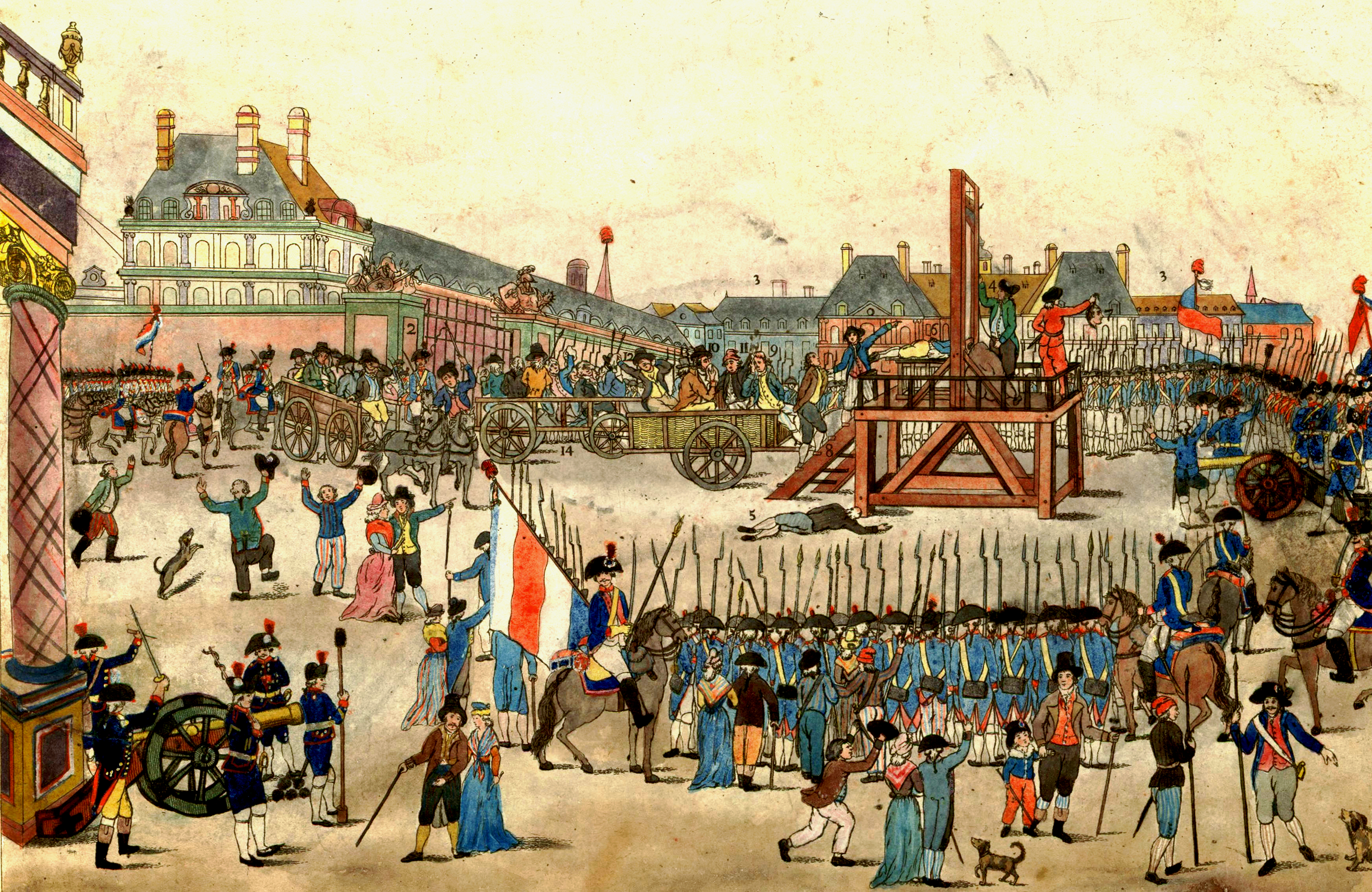The one significant interruption in the spread of the
Enlightenment’s values is the period called the Romantic Age. The meaning of
this time is still being debated, but in my model, which sees a kind of
cultural evolution in the record of human history, there are only a couple of
interesting points to note about the Romantic Age (roughly, the mid-1700s to
the mid-1800s).

Romantic imagination: "Abbey in an Oak Forest" (artist: Friedrich) (credit: Wikipedia)
First, it reaffirmed and expanded the value of the individual when
the Enlightenment had gone too far and made duty—to the family, the group, or
the state—seem like the only “reasonable” value, the one that should motivate all
humans as they chose their actions. Romanticism asserted forcefully and
passionately that the individual had an even greater duty to his own soul. I
have dreams, ideas, and feelings that are uniquely mine, and I have a right to
them. Paradoxically, this philosophy of individualism can be very useful for a whole
society when it is spread over millions of citizens and multiple generations.
This is because even though most of the dreamers produce little that is of any
practical use to the larger community and some even become criminals, a few
create beautiful, brilliant things that pay huge material, political, and
artistic dividends.
Drawing of guillotining during French Revolution (credit: Wikipedia)
In the second place, however, we should note that as a political
philosophy, Romanticism produced some painful excesses. In France, for example,
the citizens were passionate about their ideals of liberty, equality,
and brotherhood, but once they had overthrown the hereditary kings and nobles
and set up an idealistic people’s republic, they didn’t know how to administer
a large, populous state. In a short while, they fell into disorder. Then they simply
traded one autocrat for another (Louis XVI for Napoleon). Their struggle to
reach an enlightened view of the deepest nature of humans, and to understand how
a system of government that resonates with humans’ deepest nature might be
instituted, took longer than one generation to evolve. But the French did begin
evolving resolutely toward it. After Napoleon’s fall, a new Bourbon dynasty was
instituted, but the powers of the monarchs were now severely limited, and after
some more turmoil, the new Bourbon gang were also ousted. Democracy evolved –
in erratic ways and by pain, but it evolved and grew strong, and is still
evolving in France, as is the case in all modern states.

No comments:
Post a Comment
What are your thoughts now? Comment and I will reply. I promise.